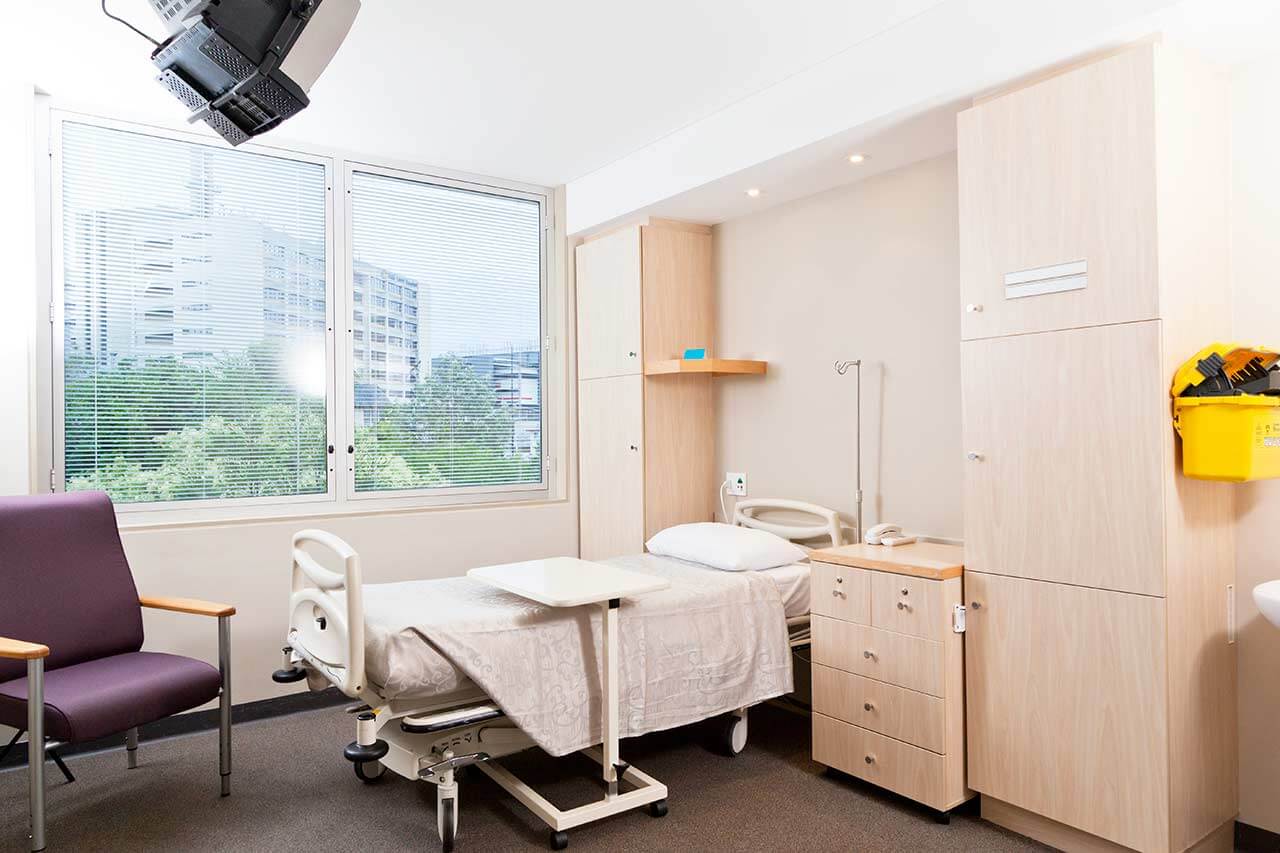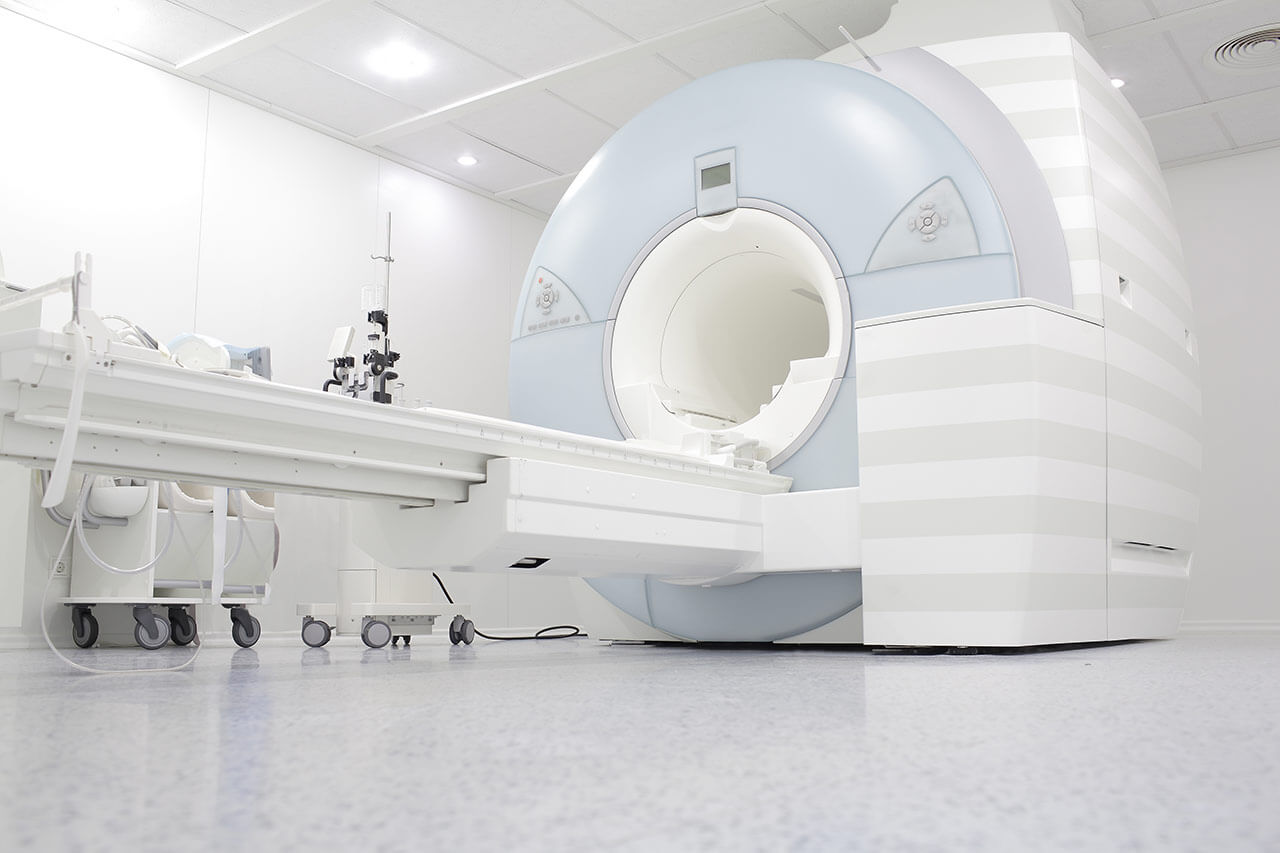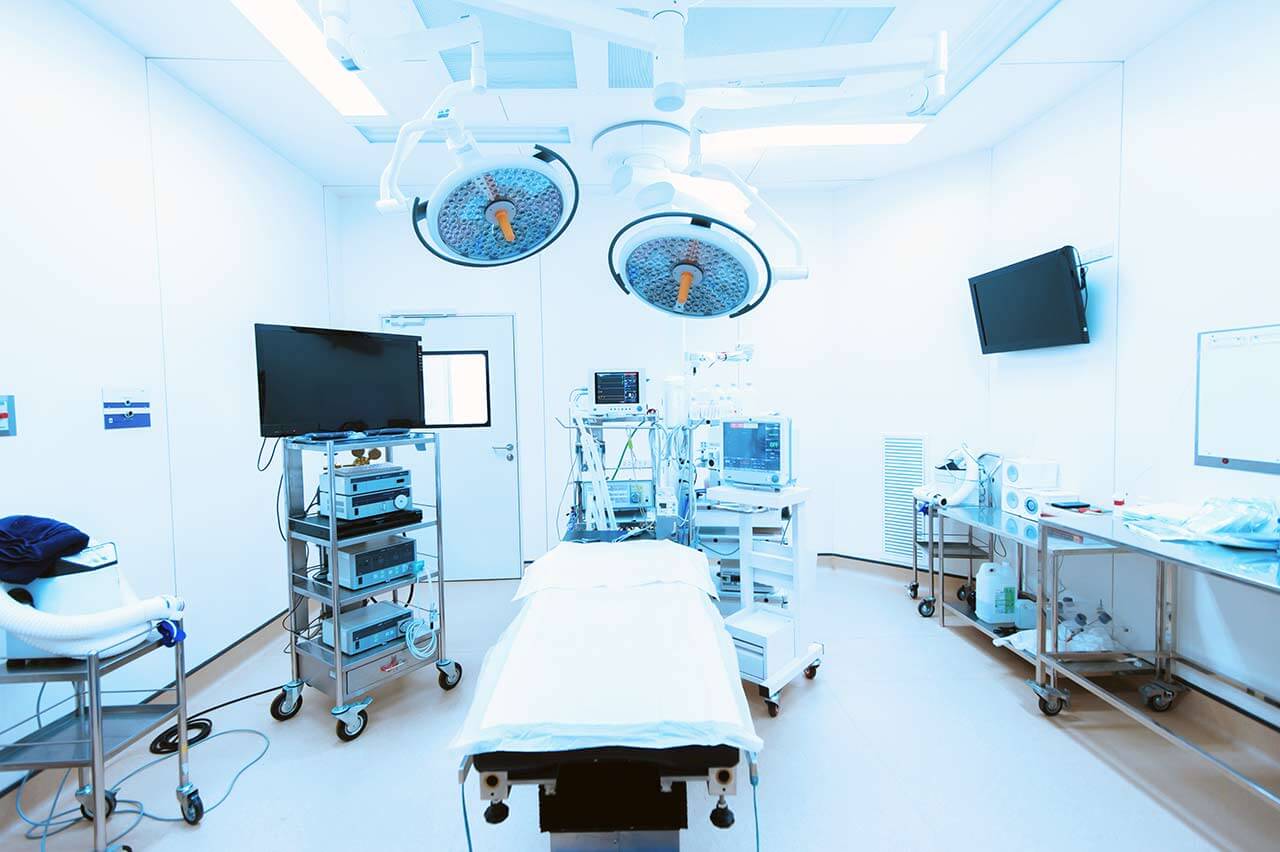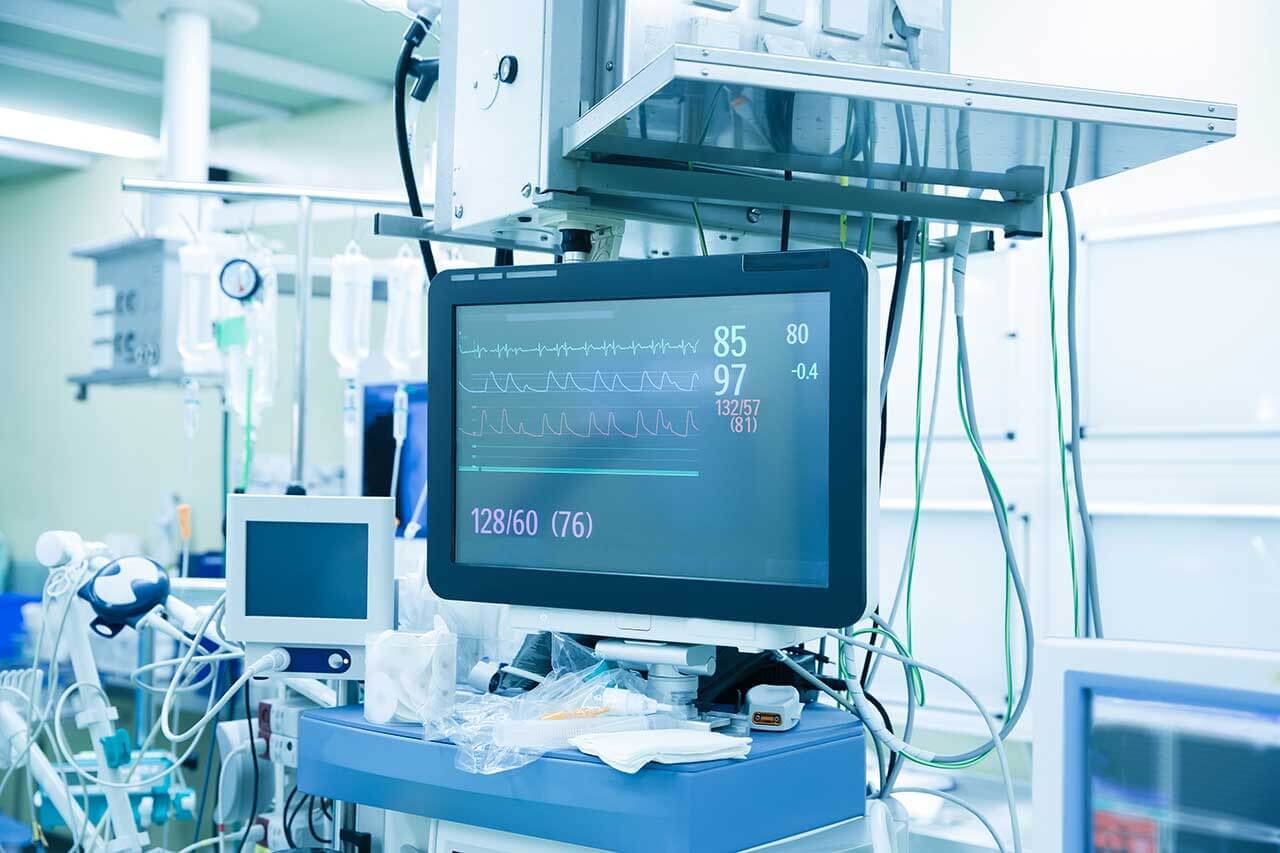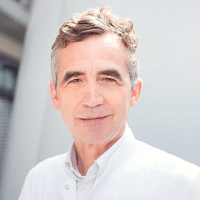
The program includes:
- Initial presentation in the clinic
- clinical history taking
- review of medical records
- physical examination
- laboratory tests:
- complete blood count
- general urine analysis
- biochemical blood test
- inflammation markers (CRP, ESR)
- blood coagulation analysis (aPTT, PT, INR)
- neurological examination
- psychiatric examination
- electrophysiology study (if indicated clinically):
- ENMG (electroneuromyography)
- EEG (electroencephalography)
- SEPs (somatosensory evoked potentials)
- VEPs (visually evoked potentials)
- BAEP tests (brainstem auditory evoked potentials)
- CT/MRI scan
(if indicated clinically, additional cost is 650/1200€) - lumbar puncture (if indicated clinically)
- nursing services
- consultation of related specialists
- treatment by chief physician and all leading experts
- explanation of individual treatment plan
(the cost of medicines is not included)
Required documents
- Medical records
- Genetic tests (if available)
Service
You may also book:
 BookingHealth Price from:
BookingHealth Price from:
About the department
The Department of Neurology at the University Hospital Rechts der Isar Munich offers all the options of modern medicine for the diagnostics and conservative treatment of nervous system diseases. The department has unique competence in the treatment of stroke, multiple sclerosis, Parkinson's disease, neuromuscular diseases, chronic back pain, chronic headaches and other pathologies. To provide comprehensive medical care, the department has modern diagnostic rooms, a special outpatient clinic, a stroke unit with state-of-the-art technical equipment and an interdisciplinary intensive care unit. The department annually provides treatment to more than 3,500 inpatients and several thousands outpatients. The well-being of patients is in the safe hands of a medical team, consisting of 50 competent doctors. The modern medical facility combines the highest level of medical knowledge, advanced technical equipment, as well as a pleasant and friendly atmosphere. The department is headed by Prof. Dr. med. Bernhard Hemmer.
The department has accumulated a wealth of experience in the treatment of inflammatory diseases of the nervous system (autoimmune and infectious ones). In this group of neurological disorders, the therapy of multiple sclerosis requires special attention. This pathology is a chronic lesion of the autoimmune nervous system that begins to develop at a young age (more often in women than in men) and eventually leads to severe disability. The causes of the development of multiple sclerosis are still unknown. As of today, there are no methods that could cure the pathology completely, and therefore multiple sclerosis therapy is aimed at alleviating symptoms and preventing the development of severe complications, including decreased visual acuity, difficulty in movement, numbness in the face, upper and lower limbs, as well as body pain. In most cases, multiple sclerosis has a relapsing-remitting course, which means that periods of remission and recurrence alternate. Nevertheless, there are also cases when neurological deficit forms immediately and gradually worsens, without the onset of remission. To make an accurate diagnosis, the department's doctors carry out a clinical examination, magnetic resonance imaging of the brain and spinal cord, as well as a lumbar puncture. The therapeutic protocol for patients with multiple sclerosis includes drug therapy based on the administration of immunomodulators, corticosteroids, interferons, and medications that suppress autoimmune responses. The specialists of the medical facility often perform plasmapheresis, the essence of which is the mechanical removal of toxins, allergens, autoimmune complexes and decay products from the blood. In addition, the treatment regimen is complemented by physiotherapy, therapeutic exercises, massage, health resort treatment.
The department also admits patients with movement disorders. The most common pathologies in this area include Parkinson's disease, tremors, dystonia, and restless legs syndrome. To treat these diseases, the department's doctors have many effective methods – from advanced medicines and botulinum toxin injections to deep brain stimulation. In addition, the department's medical team provides medical care to patients with neurodegenerative disorders. Particular attention is paid to the treatment of amyotrophic lateral sclerosis (ALS) and Huntington's disease.
The treatment of neurovascular diseases is an integral part of the department's clinical activities. The department's neurologists carry out all modern types of conservative and sparing interventional treatment (in cooperation with the specialists in the field of neuroradiology and neurosurgery) of stroke, deep cerebral vein thrombosis, inflammatory lesions and vascular stenosis of the cerebral vessels. Of particular interest is recanalization therapy for the restoration of the patency of the narrowed vessels of the brain and improvement of blood circulation.
The department's therapeutic offer includes the diagnostics and treatment of tumors of the nervous system. The department's doctors deal with the treatment of primary neoplasms and metastases in the brain and spinal cord. Brain and spinal cord cancer treatment requires a comprehensive approach, since invasive treatment can lead to severe damage to neurological functions, which in turn significantly impairs the patient's quality of life. As in many other types of cancer, patients with nervous system cancer are usually indicated for surgery, which is complemented by chemotherapy and radiation therapy. If the tumor is located in a hard-to-reach place, radiation therapy becomes the main treatment. The health of patients with brain or spinal cord cancer is in the safe hands of a large interdisciplinary team of physicians, consisting of neurologists, neurosurgeons, neuroradiologists, oncologists, radiation therapists and specialists in the field of nuclear medicine. Each treatment regimen is carefully thought out and developed taking into account the individual needs of the patient, his clinical indications.
The department's range of medical services includes the diagnostics and treatment of the following neurological disorders:
- Inflammatory diseases of the nervous system
- Autoimmune inflammatory diseases (with a special focus on the treatment of multiple sclerosis)
- Guillain-Barré syndrome
- Myasthenia gravis
- Infectious diseases of the nervous system, including neuroborreliosis
- Movement disorders and neurodegenerative diseases
- Parkinson's disease
- Essential tremor
- Dystonia
- Restless legs syndrome
- Amyotrophic lateral sclerosis
- Huntington's disease
- Neurovascular disorders
- Stroke (ischemic and hemorrhagic one)
- Cerebral venous thrombosis
- Inflammatory processes in the vessels
- Carotid artery stenosis due to atherosclerosis
- Neuro-oncological diseases
- Primary brain tumors (for example, gliomas, CNS lymphomas)
- Metastases of other primary tumors
- Chronic pain
- Chronic back pain
- Chronic headaches
- Diagnostics and treatment of other neurological pathologies
Curriculum vitae
University Education and Postgraduate Training
- 1984 - 1991 Study of Medicine, University of Freiburg.
- 1992 Doctorate.
- 1984 - 1986 Clinical Resident in the Department of Neurology, University of Freiburg.
- 1995 - 1998 Research Fellowship at the National Institute of Neurological Disorders and Stroke (NINDS), National Institutes of Health, Bethesda, USA.
- 1984 - 1986 Clinical Resident, Department of Neurology, University of Marburg.
Pedagogical Career
- 2001 - 2003 Assistant in the Department of Neurology, University of Marburg.
- 2004 - 2007 Assistant Professor and Deputy Head of the Department of Neurology, University of Duesseldorf.
- Since 2007 (W3) Professor and Head of the Department of Neurology, University Hospital Rechts der Isar Munich, Technical University of Munich.
- Since 2010 Deputy Dean of the Faculty of Medicine, Technical University of Munich.
Research Coordinator
- Since 2007 Principal Investigator in a number of clinical trials of drugs against multiple sclerosis (in particular, alemtuzumab, BG12, atacisept).
- Since 2008 Member of the Executive Advisory Board of the German Multiple Sclerosis Society.
- Since 2009 Member of the Advisory Board for several phase II and III studies (in particular, interferon-beta 1b, siponimod, daclizumab, ocrelizumab).
- Since 2009 Member of the Scientific Council of the German Competence Network for Multiple Sclerosis (2009 - 2012), Speaker (2012 - 2016), Secretary (since 2016).
- Since 2012 Member of the Scientific Council of the Munich Block System in Neurology.
- Since 2012 Member of the Executive Board of the European Committee for Treatment and Research in Multiple Sclerosis (Treasurer (2012 - 2016), Vice President (since 2016)).
- Since 2017 Member of the Executive Board of the EU Consortium for Multiple Sclerosis MultipleMS.
Participation in Editorial Boards and Scientific Societies
- Since 2009 Member of the Editorial Board of the journals Archives of Neurology, Experimental Neurology, Multiple sclerosis Journal.
Awards and Prizes
- 1995 - 1997 Scholarship of the German Research Foundation (postgraduate scholarship).
- 1997 - 1998 Fogarty Scholarship, National Institutes of Health, USA.
- 1998 Langheinrich Prize.
- 2000 Heisenberg Prize of the German Research Foundation.
- 2000 Heinrich Pette Prize of the German Neurological Society.
- 2013 Sobek Research Prize.
Photo of the doctor: (c) Klinikum rechts der Isar der Technischen Universität München
About hospital
The University Hospital Rechts der Isar Munich was founded in 1834. It combines long traditions with the very latest advances in modern medicine. The medical facility includes 33 specialized departments and 20 interdisciplinary centers, where patients can receive top-class medical care in all medical fields.
The hospital annually admits more than 65,000 inpatients for diagnostics and treatment, and about 250,000 outpatients receive effective medical care. The hospital also performs more than 40,000 surgical procedures every year, and about 2,100 babies are born here annually. One of the most significant achievements of the medical facility can be called the first transplantation of both arms above the elbow performed in 2008. The surgery that lasted 15 hours, and in which 40 doctors of various medical specialties took part, became a real sensation in the scientific world. Thanks to a unique surgical procedure, the doctors managed to give the patient new hands.
In addition, the employees of the hospital are actively involved in research activities, in which they study various diseases, as well as develop new therapeutic options for their treatment. It should be noted that the research institutes of the hospital are among the most reputable research organizations in the world. A striking example can be considered the Roman Herzog Comprehensive Cancer Center, whose specialists cooperate closely with the Comprehensive Cancer Center Munich in order to find new treatment methods for cancers.
The university hospital has a strict quality management system to maintain a high level of patient care. Since 2011, the hospital has been certified in accordance with DIN EN ISO 9001:2015 at the national and international level. The medical facility was also recertified by TÜV Rheinland in 2020.
The hospital annually provides medical services not only to German citizens, but also to thousands of patients from different countries of the world. This indicates that the hospital has an excellent reputation in the international medical arena and takes on the most complex clinical cases where other medical centers are unable to help the patient.
Photo: (с) depositphotos
Accommodation in hospital
Patients rooms
The patients of the University Hospital Rechts der Isar Munich live in comfortable single and double rooms with modern design. An accompanying person may stay with the patient in the single room. All patient rooms have an ensuite bathroom with shower and toilet. The furnishings of a standard patient room include an automatically adjustable bed, a bedside table for personal belongings, a table and chairs for receiving visitors, a wardrobe, a telephone and a TV. The patient rooms also have Wi-Fi.
The hospital also has enhanced-comfort rooms, corresponding to the level of a high-end hotel. Such patient rooms have additional amenities: a safe, a mini fridge and upholstered furniture.
Meals and Menus
The patients of the hospital are offered a balanced and healthy three meals a day: breakfast, lunch and dinner. The patients have a choice of three different menus for lunch – a classic full menu, as well as a dietary and vegetarian one. When cooking meals, the chefs comply with the current recommendations of the German Society for Nutritional Medicine (DGEM) and the German Nutrition Society (DGE).
If for some reason you do not eat all the foods, you will be offered an individual menu. The hospital also houses a cafeteria with a large assortment of hot and cold drinks, snacks and desserts.
Further details
Standard rooms include:
Religion
Religious services are available upon request.
Accompanying person
Your accompanying person may stay with you in your patient room or at the hotel of your choice during the inpatient program.
Hotel
You may stay at the hotel of your choice during the outpatient program. Our managers will support you for selecting the best option.
The hospital offers a full range of laboratory tests (general, hormonal, tests for infections, antibodies, tumor markers, etc.), genetic tests, various modifications of ultrasound scans, CT scans, MRI and PET / CT, angiography, myelography, biopsy and other examinations. Treatment with medications, endoscopic and robotic operations, stereotaxic interventions is carried out here, modern types of radiation therapy are also used. The hospital offers patients all the necessary therapeutic techniques.
- CAR T-cell therapy
- Autologous and allogeneic bone marrow transplantation
- Transcatheter aortic valve implantation (TAVI)
- Radical and organ-preserving interventions for kidney cancer
- Iridoplasty and iridotomy with Nd-YAG laser
These are acute and chronic leukemias, solid malignant tumors, heart failure, cardiac arrhythmias, heart valves stenosis and insufficiency, vasculitis, benign prostatic hyperplasia, pathologies of retina and vitreous body, Guillain-Barré syndrome, myasthenia gravis and other pathologies.
- Hematology and oncology
- Cardiology
- Nephrology
- Urology
- Ophthalmology
Over 877 highly qualified physicians work at the hospital.
